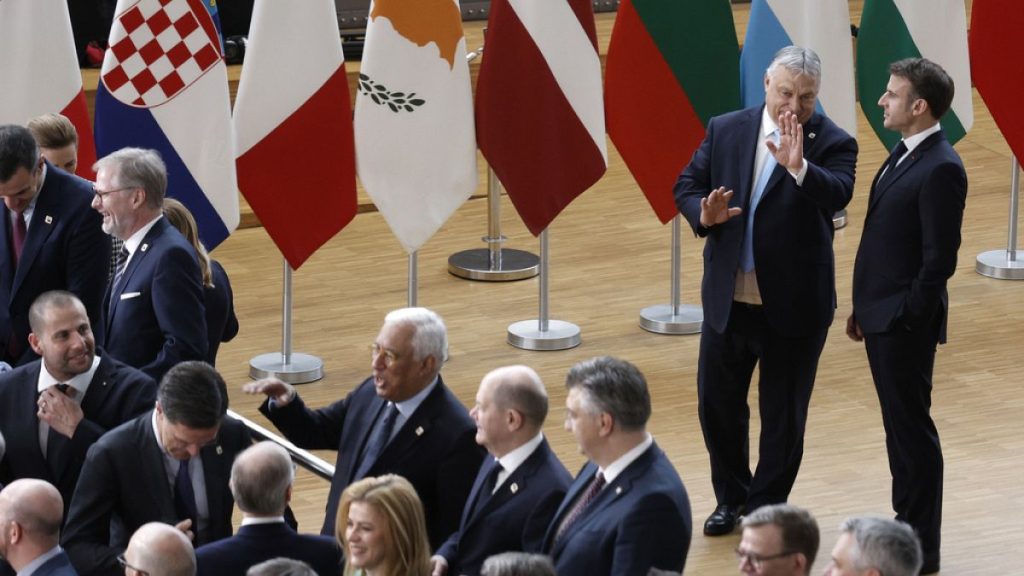The EU summit in Brussels focused on the economic impact of war and new sources of investment for defense. Since Russia’s invasion of Ukraine, the EU and its member states have supported Ukraine with almost €88 billion. The EU leaders discussed investing more in defense capacity, with some countries proposing issuing common debt and others suggesting using windfall profits from immobilized Russian assets. The use of windfall profits for military purposes for Ukraine was strongly supported, with the possibility of disbursing the first billion by July 1st. The summit highlighted the financial implications of conflict and the need for additional resources to address security concerns.
An Ipsos poll conducted in 18 EU member states for Euronews indicates that support for the far-right is likely to rise in the upcoming European Parliament elections. However, pro-European parties are expected to hold 63% of the seats. The ability to form coalitions to pass legislation may be a significant test for traditional center forces. The poll sheds light on the political landscape in Europe and the potential shifts in power dynamics within the European Parliament. The results suggest a complex and evolving political environment as the continent prepares for elections.
The European Humanitarian Forum in Brussels aimed to raise funds for global humanitarian needs, which reached unprecedented levels in the previous year. With projections indicating that nearly 300 million people worldwide require humanitarian assistance, the EU member states and the European Commission announced pledges of over €7 billion. Representatives from various United Nations agencies attended the forum, emphasizing the challenges faced by women and children in crises. The Executive-Director of the United Nations Population Fund highlighted the vulnerability of women and children in humanitarian, conflict, and climate-related disasters, stressing the need for increased support and funding to address their unique needs.
The discussions at the EU summit and Ipsos poll results underscore the importance of addressing security challenges, navigating political shifts, and responding to humanitarian needs. The financial commitments made by the EU and its member states demonstrate a willingness to invest in defense capabilities and support countries facing conflict. The upcoming European Parliament elections will likely shape the political landscape in Europe, with potential implications for governance and policy-making. The European Humanitarian Forum serves as a platform to mobilize resources and support for vulnerable populations, particularly women and children, who are disproportionately affected by crises.
The EU leaders’ focus on economic implications of conflict highlights the need for efficient resource allocation to address security concerns. The support for Ukraine and discussions around defense investments reflect a commitment to enhancing security and stability in the region. The Ipsos poll results provide insights into shifting political dynamics in Europe, with the rise of far-right parties posing challenges for traditional center forces. The global humanitarian needs underscore the importance of collective action to address crises and support vulnerable populations. The EU’s financial pledges and participation in the European Humanitarian Forum demonstrate a commitment to addressing humanitarian challenges and promoting global stability. Moving forward, continued collaboration and investment in security, political stability, and humanitarian assistance will be essential to addressing complex challenges in Europe and beyond.


